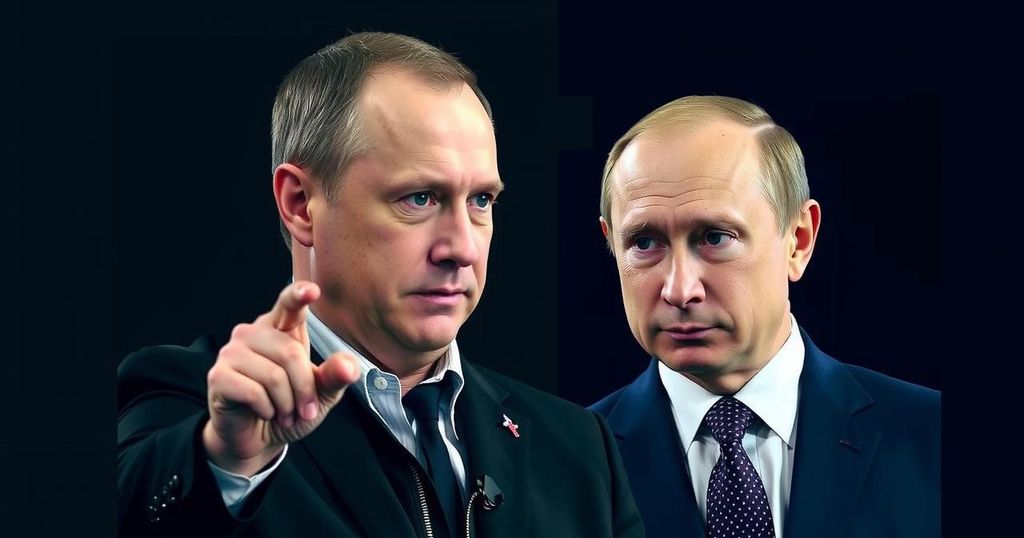A recent report indicates that Elon Musk has allegedly maintained communication with Vladimir Putin, discussing various topics, including a request not to activate Starlink satellites over Taiwan. This revelation raises national security concerns, particularly amid Musk’s significant business dealings with the U.S. military and support for Donald Trump in the context of the U.S. presidential race.
A recent report published by The Wall Street Journal suggests that Elon Musk, the CEO of Tesla and SpaceX, has allegedly been in communication with Russian President Vladimir Putin since late 2022. Despite the significant nature of these claims, Musk has chosen not to address the situation publicly. According to the article, topics of discussion between Musk and Putin reportedly range from personal matters to issues of global significance. Notably, it is alleged that Putin requested Musk to refrain from activating his Starlink satellites over Taiwan, framing this request as a favor to Chinese leader Xi Jinping. These developments raise concerns, particularly as Musk has increased his involvement in the U.S. presidential election landscape during the ongoing Russia-Ukraine conflict. Musk, recognized as the world’s wealthiest individual, has openly supported former President Donald Trump, who, like Musk, has faced scrutiny over alleged connections to Putin, though Trump has consistently denied such allegations. Musk has previously been accused of providing Starlink terminals to Russia amid the war in Ukraine, which he has emphatically refuted, declaring those reports to be “categorically false.” Should the allegations regarding Musk’s communications with Putin prove accurate, they could have implications for U.S. national security, particularly given Musk’s companies’ significant contracts with the U.S. military and government, amounting to approximately $3 billion in federal contracts last year, according to The New York Times. Moreover, indications have emerged that Trump might envision a prominent role for Musk in his administration should he secure a second term. This prospect has led to apprehensions about the potential for Musk’s relationship with Putin to impact future federal contracts involving his companies, including Tesla and SpaceX. In an effort to downplay the nature of his contact with Putin, Musk had previously stated, in October 2022 via X (formerly Twitter), that he had spoken with the Russian leader just once, approximately 18 months prior, and that their conversation had centered on space exploration.
The intersection of business, politics, and international relations has been brought to the forefront in the context of U.S. elections and the ongoing conflict between Russia and Ukraine. Elon Musk, known for his substantial investments and influence within the tech industry, has positioned himself as a significant player in both business and political arenas. His alleged ties to Vladimir Putin, along with his support for Donald Trump, have prompted scrutiny regarding the implications of such connections on national security and federal contracting. Given Musk’s substantial dealings with the U.S. government, the investigation into his communications with foreign leaders raises critical questions regarding ethical considerations and the potential for conflicts of interest.
In conclusion, the allegations surrounding communications between Elon Musk and President Vladimir Putin present serious implications for U.S. national security, particularly as Musk’s enterprises maintain significant connections with the federal government. With Musk’s involvement in the presidential election process and his support of Donald Trump, the discussion around his ties to Putin adds another layer of complexity to an already contentious political landscape. Given the potential impact on federal contracts and national security, it is imperative for policymakers and stakeholders to monitor these developments closely.
Original Source: www.hindustantimes.com







